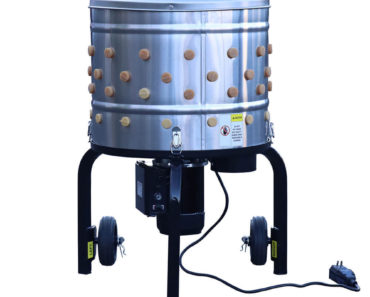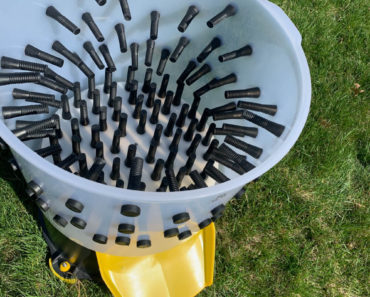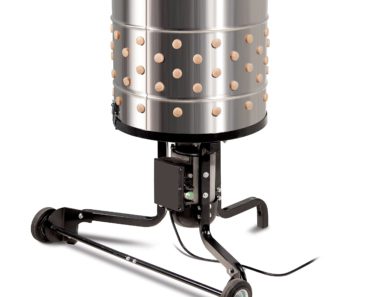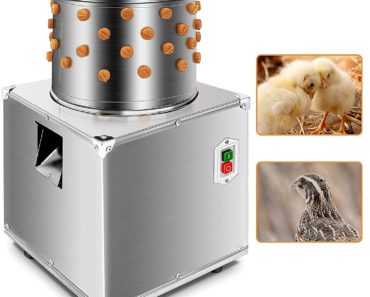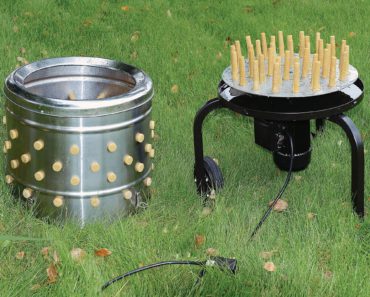Contents

We will delve into the common issue of diarrhea in chickens and provide you with valuable insights on how to effectively address and prevent this condition. Whether you are a seasoned poultry farmer or a backyard chicken enthusiast, our expert tips and strategies will help you ensure the health and well-being of your feathered friends.

Natural Remedies to Combat Diarrhea in Chickens: A Comprehensive Guide
Diarrhea is a common health issue that can affect chickens of all ages. It can be caused by various factors such as dietary changes, bacterial or viral infections, or stress. While it is always recommended to consult a veterinarian for proper diagnosis and treatment, there are some natural remedies that can help alleviate diarrhea in chickens.
1. Probiotics: Probiotics are beneficial bacteria that can help restore the balance of gut flora in chickens. Adding probiotics to their feed or water can promote good digestion and reduce the severity of diarrhea.
2. Ginger: Ginger has anti-inflammatory properties and can soothe the digestive system. Adding grated ginger to their feed or water can help reduce inflammation and relieve diarrhea symptoms.
3. Chamomile: Chamomile tea acts as a natural antispasmodic and can calm the intestinal muscles. Serving chamomile tea instead of plain water for a few days can help ease diarrhea.
4. Apple Cider Vinegar: Apple cider vinegar has antimicrobial properties and can help combat bacterial or parasitic infections that may be causing diarrhea. Add a tablespoon of raw, unfiltered apple cider vinegar to their water to aid in recovery.
5. Pumpkin: Pumpkin is rich in fiber and can help regulate bowel movements. Adding cooked pumpkin to their diet can improve digestion and firm up loose stools.
Remember, these natural remedies should only be used as supplements and not as replacements for veterinary care. If your chicken’s diarrhea persists or worsens, it is crucial to seek professional advice. Taking preventive measures such as maintaining good hygiene, providing a balanced diet, and minimizing stress can also help prevent diarrhea in chickens.
With proper care and attention, your chickens can recover from diarrhea and thrive in a healthy environment.
Causes of diarrhea in chickens
Diarrhea in chickens can be caused by various factors. Poor diet, bacterial infections, parasites, and stress are common causes. Poorly balanced diets or sudden changes in feed can upset the digestive system, leading to diarrhea. Bacterial infections, such as Salmonella or E. coli, can also cause diarrhea in chickens. Parasites like coccidia or worms can damage the intestines, resulting in diarrhea. Additionally, stressful conditions like overcrowding or extreme weather can weaken a chicken’s immune system and make them more susceptible to diarrhea.
Treating diarrhea in chickens
Isolate affected chickens to prevent the spread of any potential infections. Provide clean and fresh water to keep the chickens hydrated and replace electrolytes, which may be lost due to diarrhea. Consider adding probiotics to their diet to help restore the balance of beneficial gut bacteria. Feeding cooked rice or boiled mashed potatoes can help firm up their stool. Avoid feeding them high-fiber foods like fruits, vegetables, or grass until the diarrhea subsides. If the diarrhea persists or worsens, it is recommended to consult a veterinarian for further diagnosis and treatment.
Preventing diarrhea in chickens
Maintaining a balanced diet is crucial in preventing diarrhea in chickens. Ensure they have access to a nutritionally complete and appropriate feed. Gradually introduce any dietary changes to avoid digestive disturbances. Provide clean and spacious living conditions to minimize stress. Regularly clean and disinfect coops, feeders, and waterers to prevent the spread of bacteria. Practice good biosecurity measures by limiting visitors and quarantining new birds to prevent the introduction of diseases. Lastly, regularly monitor your flock’s health to detect any signs of illness early on and take appropriate action.
FAQ
What are some effective remedies for stopping diarrhea in chickens?
There are several effective remedies for stopping diarrhea in chickens:
1. Withhold food for 24 hours: This allows the digestive system to rest and recover.
2. Give electrolytes: Provide electrolyte supplements or an electrolyte solution to help replenish lost fluids and minerals.
3. Administer probiotics: Probiotics can help restore the balance of beneficial gut bacteria, aiding in digestion and reducing diarrhea.
4. Use a quality poultry feed: Ensure that you are providing a balanced and nutritionally complete feed to support optimal digestive health.
5. Add apple cider vinegar: Adding a few tablespoons of apple cider vinegar to the chicken’s drinking water can help regulate the pH of the digestive system and promote healthy gut flora.
6. Avoid overcrowding: Overcrowding can increase stress levels and contribute to the spread of diseases, including diarrhea. Provide enough space for each chicken.
7. Maintain good hygiene: Regularly clean the coop and provide clean water to prevent the spread of pathogens.
8. Consult a veterinarian: If diarrhea persists or is accompanied by other symptoms, it’s important to seek professional veterinary advice for proper diagnosis and treatment.
Remember, always prioritize the health and well-being of your chickens, and consult a veterinarian if the condition doesn’t improve or worsens.
Are there any specific dietary changes or supplements that can help alleviate and prevent diarrhea in chickens?
There are several dietary changes and supplements that can help alleviate and prevent diarrhea in chickens.
1. Probiotics: Adding probiotics to the chicken’s diet can help restore the balance of beneficial bacteria in their gut, which can aid in digestion and reduce the risk of diarrhea. Probiotics can be given in the form of powder, liquid, or as part of a specialized feed.
2. Electrolytes: Diarrhea can lead to dehydration and electrolyte imbalances in chickens. Providing electrolyte supplements in their drinking water can help replenish lost fluids and essential minerals.
3. Fiber: Including fiber-rich ingredients in the chicken’s diet can help regulate their digestive system and reduce the likelihood of diarrhea. Foods like leafy greens, vegetables, and hay can provide the necessary fiber.
4. Avoidance of spoiled or contaminated feed: Ensure that the chicken’s feed is not spoiled or contaminated as it can cause digestive issues and diarrhea. Regularly check for any signs of mold, pests, or foul odors in the feed.
5. Limited treats and scraps: While treats and kitchen scraps can be enjoyed by chickens, excessive amounts can upset their digestive system and lead to diarrhea. Limiting the quantity of treats given can help prevent this issue.
6. Hygiene and clean living environment: Maintaining proper hygiene and cleanliness in the chicken coop is crucial to prevent the spread of pathogens and reduce the risk of diarrhea. Regularly clean and disinfect the coop and ensure fresh bedding is provided.
7. Veterinary consultation: If diarrhea persists despite dietary changes and supplements, it is important to consult a veterinarian. They can provide further guidance and determine if any underlying health issues are contributing to the diarrhea.
Please note: It is important to remember that diarrhea can also be caused by various diseases, infections, and parasites. If diarrhea is severe, persistent, or accompanied by other concerning symptoms, seeking veterinary advice is essential.
How can I prevent the spread of diarrhea among my flock and maintain their overall health?
Preventing the spread of diarrhea among your flock and maintaining their overall health is crucial for optimal chicken production. Here are some key steps you can take:
1. Practice good biosecurity measures: Keep your chicken coop clean and well-maintained. Regularly disinfect the coop and equipment to prevent the buildup of harmful bacteria. Limit visitors to your flock, and ensure that anyone who does come into contact with your chickens follows proper biosecurity protocols.
2. Provide a balanced diet: Feed your chickens a nutritious and well-balanced diet that meets their specific nutritional needs. Include a mix of grains, protein sources, vitamins, and minerals. Avoid sudden changes in feed, as this can disrupt their digestive system.
3. Ensure access to clean water: Clean, fresh water should always be available for your chickens. Regularly clean and refill their water containers to prevent contamination and the growth of harmful bacteria.
4. Monitor and manage stress levels: Chickens under stress are more susceptible to diseases like diarrhea. Minimize stressful situations, such as overcrowding, extreme temperatures, or excessive noise. Provide proper ventilation and ample space for your flock to roam.
5. Implement good hygiene practices: Wash your hands thoroughly before and after handling your chickens or their eggs. Wear protective clothing and shoes dedicated to working with your flock. Limit the introduction of new birds to your existing flock and quarantine newcomers to prevent the spread of diseases.
6. Observe and identify symptoms early: Regularly monitor your chickens for any signs of illness, including diarrhea. Early detection can help prevent the further spread of disease. If you notice any abnormal behavior, consult with a veterinarian to diagnose and treat the issue promptly.
7. Consult with a veterinarian: If diarrhea becomes a recurring or persistent problem in your flock, seek professional advice from a veterinarian. They can provide specific guidance based on the individual needs and circumstances of your chickens.
Preventing and treating diarrhea in chickens is crucial for their overall health and well-being. By implementing simple measures such as maintaining proper hygiene, providing a balanced diet, and administering probiotics, chicken owners can effectively manage and even stop diarrhea in their flocks. Additionally, prompt identification and treatment of underlying causes, such as parasites or bacterial infections, can play a significant role in alleviating diarrhea symptoms. Remember, early intervention and proactive care are key to keeping your chickens happy and healthy.

